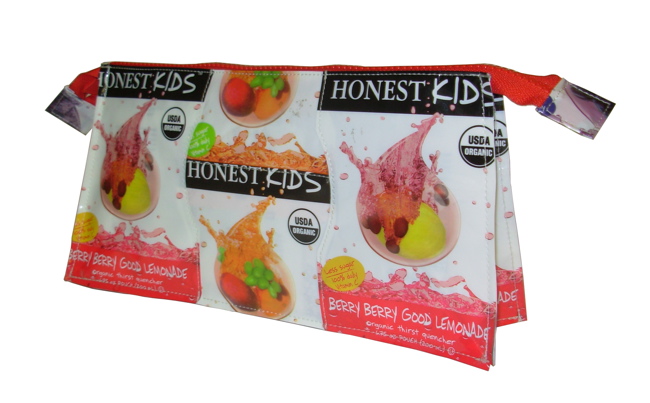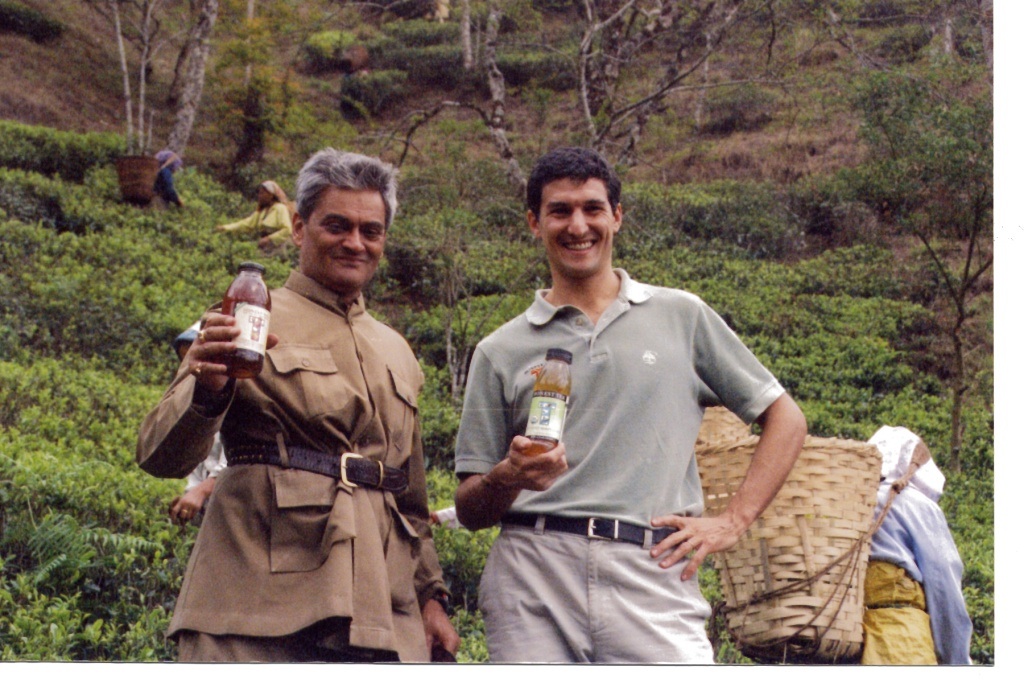Green Moms Carnival is Up: Green Moms Spill Their Eco-Secrets
Head on over to visit Jenn Savedge’s site, The Green Parent, where you can read all about the “Eco-Secrets” of the Green Moms of the Green Moms Carnival.
While I don’t normally laugh at behavior that’s not mindful of the environment, I know these women – and I know that they live their lives with tremendous concern for the environment. Still, none of us are perfect. (Although I do think Beth of Fake Plastic Fish and Diane of Big Green Purse come awfully close to perfection). Let’s face it, it’s human nature to want to know the “real scoop” and what goes on behind closed doors (or on vacation, in my case!)
As I read these posts, my initial reaction was to howl with laughter and self-recognition. But then these profound words from this OrganicMania interview with Seth Goldman, Tea-EO of Honest Tea, came back to me:
“Still, it’s a challenge. We live in a consumer society. The definition of a consumer is to destroy, and the definition of sustainability is the exact opposite. How do you live a sustainable life in a consumer society? You’re setting yourself up for a contradiction.”
He’s so right, isn’t he?
What do you think? Please leave a comment and share!
— Lynn
Copyright OrganicMania 2009
Photo Credit: XKCD, reprinted under CCL.
Filed under Green moms, Green Moms Carnival Home Page & Calendar | Wordpress Comment (1) |Organic Food Savings: Buying in Bulk and Watch those Price Labels!
The notion of bulk purchases often conjures up images of huge warehouse stores like Costco or Sam’s Club. While the savings there are great, the huge quantities you’re normally required to purchase and the far-flung suburban and exurban locations are turn-offs for many people.
Too often in our rush to pick up the weekly groceries we forget that bulk options exist in conventional grocery stores and organic markets alike. Back in April, OrganicMania posted 10 Tips for Saving Money on Organic Food from one of DC’s top organic grocers, Scott Nash. Despite my near-weekly trips to My Organic Market, until that interview with Scott, I never realized that MOM’s offers 10% case discounts on foods including 3 pound wheels of cheese, nuts, grains, granolas, beans, and more. Those discounts can really help you to save money on organic food.
Similarly, sometimes we forget the old rule of thumb to buy in bulk when our favorite foods are on sale. And frankly, the signage in some stores doesn’t help get the message across very clearly either. Take this sign for a sale on Horizon organic cheese. (Horizon cheese is not my personal favorite, but when it comes to kiddie lunches and snacks – particularly on those long car trips when it’s A Dilemma to be Organic & On the Road – those little individually wrapped cheese slices are a godsend.)

A quick first look at this sign had me thinking that it was a decent sale, 2 for $5.00, a savings of $1.49 off the regular price. After all, that’s what the sign says, as you can see. But that sign doesn’t clearly illustrate the savings. Think about it. The $1.49 savings is on each package of cheese, now on sale 2 for $5. So when you buy 2, you’re actually saving $2.98, not $1.49. A better way to think about it? Horizon organic cheese: 40% off. You don’t normally think of Whole Foods as a bulk purchase store, but we certainly stocked up on this incredible savings at DC’s Tenleytown Whole Foods. But hurry – this sale ends tomorrow, July 1.
Other great deals? There are some terrific non-organic savings from Whole Foods private label Whole Pantry collection, on sale at $3 per package, a savings of .99 per package. These easy-to-prepare couscous and veggies and other entrée frozen vegetable meals are great as compliments to simple salads. While they’re not organic, they’re imported from France, so they’re non-GMO, which is one key reason many people buy organic foods. And they’re delicious. Try the goat cheese and eggplant dish. Too big a carbon footprint? Well, some of the 365 Brand frozen organic vegetables are imported from China! That’s even further from this East Coast store. But ya gotta love Whole Foods – organic, conventional, local, domestic, imported, and any combination of those – there’s something for everyone.
And yes, it’s still a great time to buy organic strawberries. The incredible sale we discussed last week is still on – and so these delicious organic strawberries are still cheaper than conventional strawberries. And now the organic raspberries are finally on sale too, at $2.99 per pint, a reduction of $1.00 per package.
And finally, given that it’s summer time, what a great excuse to try some organic iced tea, now on sale. Can’t wait to try the new Rishi Organic Artisan Iced Tea I picked up on sale. Remember, as Seth Goldman of Honest Tea told us in this OrganicMania interview, those nasty pesticides aren’t washed off conventional tea leaves until they hit your hot water!
Did you find any good deals this week? Leave a comment and share! And if you want to hear about these deals – and more – live, sign up here to follow me on Twitter. It’s micro-blogging about organics, green living, kids and more. It’s fun!
Happy Shopping!
Lynn
Copyright 2008 OrganicMania
Filed under Food, Organic Prices, Product Recommendations, Savings Tips, Whole Foods | Wordpress Comments (4) |Interview: Seth Goldman, Tea-EO of Honest Tea, Part 2
Part 1 of the OrganicMania Interview with Seth Goldman is here.
OrganicMania: Honest Tea’s kids’ tea, Honest Kids, is sold in plastic pouches that aren’t recyclable. I know you have information on the wrapper about your relationship with Terracycle, but it’s a bit hard to follow…you have to go to the website to get more information, for example. Not many tired Mothers have the presence of mind to do that before disposing of the packaging.
Seth Goldman: Actually, that plastic pouch is the most environmentally efficient packaging we have. By weight, the pouch is 97% product, and only 3% packaging so there’s very little waste. We’re not using fuel just to ship packaging.
Since we launched that line last year, several thousand pouches have been collected and turned into bags through our relationship with Terracycle. We are reaching 1,000 collection sites around the country, in places like schools, youth centers, and other places where kids gather.
(Ed Note: You can learn more about this re-use program here.)
Still, it’s a challenge. We live in a consumer society. The definition of a consumer is to destroy, and the definition of sustainability is the exact opposite. How do you live a sustainable life in a consumer society? You’re setting yourself up for a contradiction.
I just participated in a class discussion at the Yale School of Management, and I talked with the students about environmental impacts of business. What we can try to do is to take our environmental practices and our consciousness about our packaging and try to move things in a different direction.
OrganicMania: Still, when we were kids, we just didn’t use this much plastic. I remember paper straws, for example. Couldn’t you use a paper straw with the drink pouch instead of plastic?
Seth Goldman: Well, you need some sharpness to punch in the drink pouch and insert the straw. You couldn’t do that with paper.
OrganicMania: I see there are a lot of issues to consider when looking at which materials to use…it’s especially interesting to hear about the trade-offs between plastic and glass. I think most people are unaware of these trade-offs and just tend to think that plastic is bad and glass is good because of recycling. But as you’ve shown, you can save fuel and cut carbon emissions through plastic use and then encourage re-use of plastic through programs like the one Honest Kids has underway with Terracycle.
Speaking of kids, recently I blogged about what I call “Organic Kid Marketing” – organics companies that are using cartoon characters on packaging to market their products directly to kids. It’s notable that you chose not to do that with Honest Kids. In fact, there are pictures of fresh fruit on the Honest Tea boxes and drink pouches, yet it’s obvious it’s a kid’s drink because of the iconic plastic pouch shape that speaks to kids. Did you have heated internal discussions about whether or not to engage more directly in “Organic Kid Marketing?” And do you know the ages of typical Honest Kids consumers?
Seth Goldman: It was a deliberate decision not to do something like putting “Elmo” on the package, because we didn’t want to limit the age of the people who would be interested in drinking Honest Kids. In fact, I know a lot of adults who drink it. People write in and tell us, “I drink it in my office,” so it’s obvious it’s not kids who are doing that! We really don’t know the exact age range of most of the Honest Kids drinkers…our information right now is mainly anecdotal. Kids do like to be seen with it. We know we’re not losing opportunities with it because there’s not a character used to market it. In fact, use of a character probably would have limited the market for Honest Kids. I know there are kids in middle school drinking Honest Kids. You wouldn’t catch a sixth grader with a Power Rangers juice box! So while we don’t know the exact age, I think age 2 to 12 is probably the right way to think about it.
And that’s another positive part of our deal with Coca Cola. We’ll get a lot more distribution of Honest Kids, including, hopefully, at places like McDonalds.
OrganicMania: Obviously, your professional life is all about organics. What about your personal life? You have kids, too. How do they deal with all the focus on organics?
Seth Goldman: We’re vegetarian, we eat mainly organic, we have a composter in the back, we drive a hybrid, I ride my bike a lot…but that said we’re living in a consumer society so we deal with the same contradictions everyone faces. My kids are sometimes teased about it, but in a fun way.
OrganicMania: You’ve used your blog, Seth and Barry’s Blog, to address customer concerns about Coke’s investment in Honest Tea. When you’re not doing your own blogging, which blogs do you enjoy reading?
Seth Goldman: I like reading Emily Bazelon on Slate, I like reading some of the blogs on Inc.com and Stonyfield Farm’s blog.
OrganicMania: Thanks so much for your time, Seth! This has been a really interesting discussion – I think people will enjoy it.
— Lynn
Copyright 2008 OrganicMania
Filed under Interviews, Marketing, Organic Mommypreneurs, Sustainable Packaging | Wordpress Comments (6) |Interview: Honest Tea Tea-EO Seth Goldman (Part 1)
Big news hit the organics world in early February, when Coca-Cola took a 40% stake in Honest Tea, the nation’s best selling and fastest growing organic tea company. Seth Goldman, Honest Tea’s co-founder and “Tea-EO” sat down with OrganicMania in March at Honest Tea’s light filled, eco-friendly headquarters in Bethesda, Maryland for this interview touching on sustainable packaging and the organics movement.
Note: With my background in corporate marketing, I’m accustomed to seeing CEOs flanked by their PR people. Given Coke’s considerable stake in the company, I half-expected a visitor from Atlanta to join us. But it was just Seth and yours truly for 45 minutes. Here’s what was discussed:
OrganicMania: What sparked your interest in organics and sustainability?
Seth Goldman: I’ve always had environmental awareness. I’ve always spent a lot of time outdoors. I worked at Calvert Group where they had environmental screens. I was leader of a campus group for students for responsible business, now called NetImpact, although I was more focused on economic opportunity than environmental issues.
After starting Honest Tea, it was only natural to get more focused on and more concerned about the environment and agricultural practices. One of the things I learned is that tea is one of the few products that is never rinsed. If you have a tomato or an apple, you can easily rinse it before eating it. But if chemicals are sprayed on tea leaves, the chemicals stay on the tea leaves until hot water is poured in the teacup. In countries like China and India, there is a lot less oversight. Unless there’s an organics inspector, it’s safe to assume atrazine is used, which is the herbicide believed to be responsible for dual sex frogs. There are concerns about safety and the affects on people. So it was in the process of learning about tea for Honest Tea, that I learned about organics. We looked at every responsible option available to us. And the beginning was the use of organic sweeteners.
OrganicMania: What about packaging? One of the main issues that bothers green consumers, like those who come to OrganicMania, is that even if you take the time, energy and money to seek out an organic or green product as an alternative to a traditional product, odds are the organic or “green” product will still be packaged in plastic or some other environmentally-unfriendly packaging. How long will it be until we have biodegradable packaging for organics and green products? What kinds of strides are being made in that area?
Seth Goldman: It’s an evolution. There are no simple answers, although technology is advancing, and that will help. One example of this is corn resin, which can be made into biodegradable plastic for some products. But that won’t work with Honest Tea, because we heat up to 180 to 190 degrees and biodegradable plastic couldn’t withstand that kind of heat. Some biodegradable plastic will work with commercial composting, but not with home composting, and commercial composting is not yet widely available. You can’t put biodegradable plastic in a recycling bin because the plastic is not a PET, and so that bottle contaminates the waste stream.
There are some interesting ideas being proposed, for example, to increase the use of recycled content. Coca-Cola is doing a lot of this, and through Coca-Cola, we’ll now be able to increase our recycled content. Can we get to over 20 percent recycled content in our bottles? I would love to see us go further in that direction. On our own, Honest Tea doesn’t command enough attention from suppliers to make them supply us with recycled content in our bottles, but when we are associated with the world’s largest beverage company, we have a better chance to get their attention.
There are other advances in packaging that are exciting. For example, looking at second uses for products. What about peeling off the skin on a product? So that even if the outer skin couldn’t be recycled, the inner skin could be recycled. These are just ideas, but again, this is part of the reason I’m excited about our deal with Coca-Cola. The Coca- Cola R&D centers are doing a lot of interesting research in these areas.
Visit OrganicMania.com tomorrow for Part 2 of this interview with Honest Tea co-founder and “Tea-EO,” Seth Goldman, where he’ll continue the discussion about plastic packaging, sustainability, and Honest Tea’s deal with Coke.
What do you think about Seth’s viewpoints? Leave a comment and share!
— Lynn
Copyright 2008 OrganicMania
Filed under Interviews, Marketing, Organics, Organics vs. Conventional Foods, Sustainable Packaging | Wordpress Comments (3) |A Community Goes Green – Watch Bethesda Green
Green initiatives are popping up all around the world, as people try to do something meaningful to slow global warming, reverse pollution, and make the environment cleaner and safer for generations to come. You’ve seen it with the Eco-Moms, Portland’s Green Groups, and now, the kick-off of Bethesda Green, an ambitious project to make Bethesda, Maryland a model green community.
In what may be the first effort of this type, business, government, community, and non-profit leaders are coming together to develop programs that will reduce Bethesda’s carbon footprint, increase its recycling rate, and reduce landfill waste and pollution. And this is just the first phase of the project! In the second phase, Bethesda Green aims to encourage smart growth and green development and to green its business community.
Championed by a local business leader and a county councilman, Bethesda Green is being defined by its community members. Expectations were that 75 people would show up for the kick-off, but nearly 400 folks arrived – from retirees to students to Moms to business owners to community and civic leaders.
This is such a new concept that no one is sure exactly how things will unfold, but the goal is to make Bethesda a model green community.
Thinking about a similar green initiative in your community? Here are six tips to help you get started:
1. Don’t mandate – encourage.
2. Find like-minded leaders in your community and form a small steering committee to help set things in motion.
3. Be open-minded. Everyone has a stake in this. This means business and government and non-profits and students and private citizens.
4. Get some help from professional organizers, at least for the initial phases. Bethesda contracted with the Livability Project* and the Sustainable Business Network of Washington.
5. Make it fun. Plan interesting events to educate and entertain.
6. Put as much on the web as you can. Identify best web practices to facilitate cooperation and communication.
Resources:
Bethesda Green Website (Soon to be relaunched)
Bethesda Green Blog (Soon to be relaunched)
Local media coverage – Washington Business Journal, Bethesda Gazette, more Gazette coverage
Launch Kick-off Remarks by Seth Goldman of Honest Tea, the visionary behind Bethesda Green
Have you been involved in similar initiatives? What do you think about Bethesda Green? Leave a comment and share! Continue reading »
Filed under Green Ideas & Stuff, Tips | Wordpress Comments (7) |




 My StumbleUpon Page
My StumbleUpon Page



